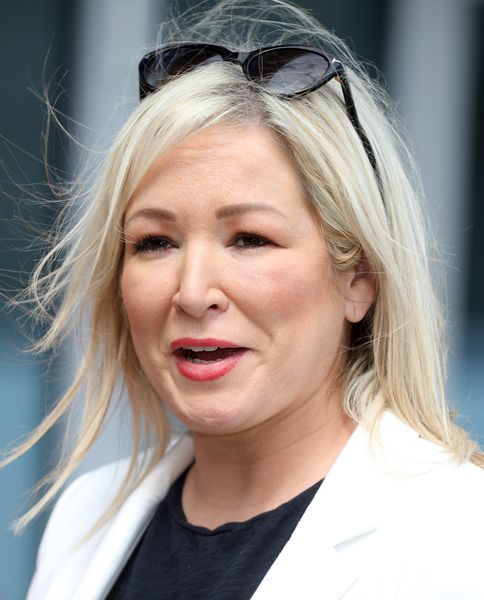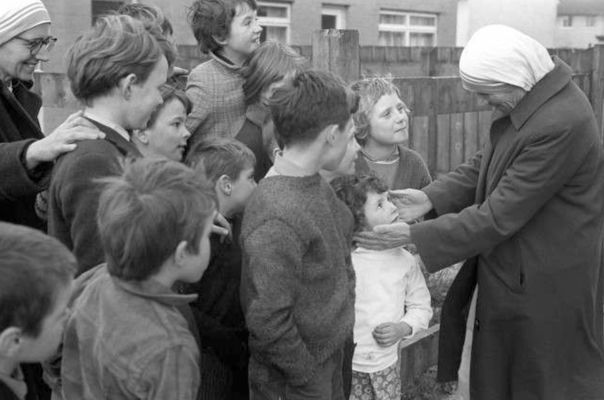FIRST Minister-elect, Michelle O'Neill has said that parties in the North don't need a pep talk from Boris Johnson as the Prime Minister is due to arrive in Belfast for meetings with party leaders.
This comes after Michelle O’Neill met with the Taoiseach Micheál Martin this morning.
Following their meeting in Dublin, Ms O’Neill said: “Our shared priority is to have a functioning Assembly and Executive that delivers real and positive change for people.
The democratic outcome of the election must be respected.
“People cannot wait a day longer for parties to get to work on their behalf, to support them through rising living costs and to fix our health service.”
Unilateral action by the British govt to denounce the Withdrawal Agreement, or disapply the Protocol is reckless.
— Michelle O’Neill (@moneillsf) May 15, 2022
Only through joint agreement with the EU can solutions to problems be found
I will tell Boris Johnson he is feeding political instability and economic uncertainty
A spokesperson for the Taoiseach said: "As part of his ongoing engagement with political leaders in Northern Ireland, the Taoiseach met this morning with Michelle O’Neill.
"They both agreed on the importance of having the NI Assembly and Executive up and running as soon as possible.
"This is what the people of Northern Ireland voted for less than two weeks ago. That the democratically elected Assembly is being impeded from sitting and doing its business is in nobody’s interests.
"They expressed serious concern about possible unilateral moves on the Protocol by the British Government, which would have a destabilising impact on Northern Ireland.
"They recognised that there are genuine issues regarding aspects of the implementation of the Protocol but these can be taken forward in the context of EU-UK discussions.
"Only agreed outcomes will provide the stability and certainty that Northern Ireland needs."
Met @moneillsf today in Government Buildings.
— Micheál Martin (@MichealMartinTD) May 16, 2022
We agreed on importance of getting NI Assembly and Executive up and running quickly.
Issues relating to the Protocol can and must be solved through EU and UK discussions, and unilateral action avoided. pic.twitter.com/EeOTOpt93k
Mr Johnson is expected to tell the parties that he is not planning to remove the Protocol, but instead propose amendments to it that he hopes will appease the concerns of unionists.
In a statement ahead of the visit, Downing Street said the Prime Minister would deliver a “tough message” to party leaders and that they must “get back to work” so that they can deal with the “bread and butter issues” like supporting families with the cost of living, cutting Covid backlogs and fighting crime.
The statement continued: “The PM will make clear that the government has never suggested scrapping the Protocol. There will always have to be a treaty governing the UK’s relationship with the EU in respect of Northern Ireland in order to prevent a hard border on the island of Ireland and protect the integrity of the EU single market.
“Instead, the Protocol needs to be reformed so that it delivers on its initial objectives to protect the Belfast (Good Friday) Agreement in all its dimensions."
SF Stormont leader Michelle O’Neill, between meetings with Taoiseach in Dublin and PM in Belfast, says her party “doesn’t need a pep talk from Boris Johnson… Boris Johnson and the Tory party are actually shoring up the DUP’s bad behaviour, and that’s reckless” @VirginMediaNews pic.twitter.com/1vbsrhwLpp
— Gavan Reilly (@gavreilly) May 16, 2022
He will say that there is “no disguising the fact” that the delicate balance of the Agreement has been upset by the Protocol, because one strand of the Agreement (North-South) has taken precedent over another (East-West).
“This undermines the text of the Agreement, which makes clear that all strands are of “interlocking and of equal importance”. It has eroded the historic economic bonds which link Great Britain and Northern Ireland and resulted in the Unionist community feeling like its aspirations and identity are threatened.
“The UK and EU’s “shared objective” should be for a reformed Protocol to enjoy “the broadest possible cross-community support” when it faces a consent vote in 2024.”
@CatharineHoey is absolutely correct on @StephenNolan programme. The UK trades with EU single market via the UK-EU Trade & Cooperation Agreement. That will continue when Irish Sea border is removed. DUP’s 7 tests apply to any outcome & Article VI of the Acts of Union is respected
— Jeffrey Donaldson MP (@J_Donaldson_MP) May 16, 2022
Ahead of his meeting with Boris Johnson, DUP leader Sir Jeffery Donaldson said that the Prime Minister’s visit is a recognition that the Protocol is not working and is harmful to the North.
“Those problems must be addressed,” he said.
“We await to hear what the Prime Minister has to say, but we will not make judgements based on words.
“It is decisive action that must be taken. The problems have been clearly identified and I have set out seven tests against which action will be judged.”
Mr Donaldson added that until that action is taken, the consensus necessary for power-sharing does not exist.
"We respect the mandate received by other parties, but equally they must recognise the clear view expressed by the unionist electorate,” he continued.
“We have been waiting a long time for this moment and unionism has been both reasonable and patient. Were the situation reversed, no one would seriously argue that it would be sustainable for nationalist concerns to be ignored. We must deal with the problems that exist, restore consensus and then move forward on that basis.”








